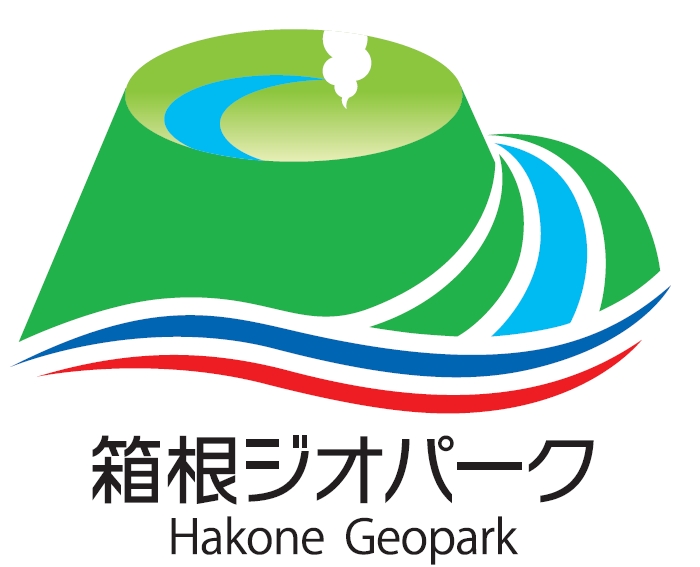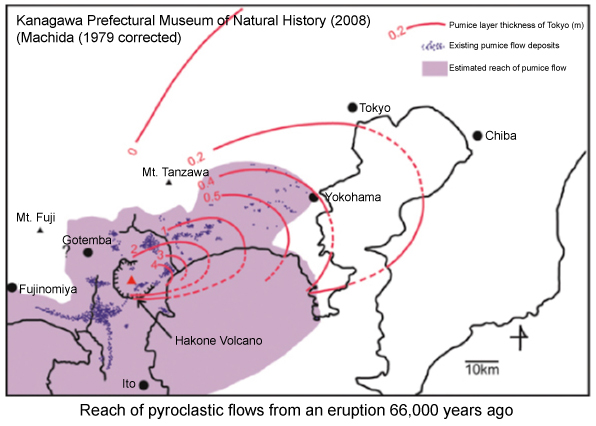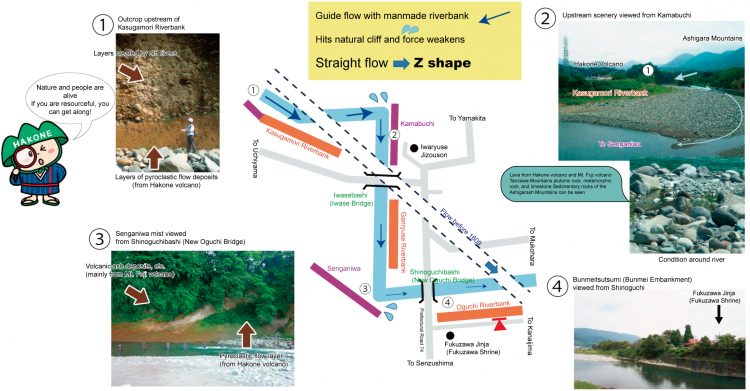Volcanic activity related to both flooding and flood control Bunmeitsutsumi (Bunmei Embankment)
In the area around Bunmei-Zutsumi there are natural cliffs formed by the Sakawa River eroding pyroclastic flow deposits erupted from the Hakone volcano. This is a geosite where you can learn the history of our predecessors, who cleverly took advantage of these cliffs to weaken the force of the river and suppress flooding in their fight against disaster.
Battle against a rampaging river
The Sakawa River repeatedly flooded and caused tremendous damage to Ashigaraheiya so much that it was once called “Abaregawa (Rampaging Riviera)”.
History of flooding and flood control
- 1609 (Year Keicho 14)
- Lord of Odawara, Okubo Tadayo, Tadachika Z shape with 3 dykes, 2 boulders completed
- 1707 (Year Hoei 4)
- Riverbed rises from ashes of the Mt. Fuji Hoei eruption, heavy rains cause the collapse of Ganryuse riverbank and Oguchi riverbank
- 1726 (Year Kyoho 11)
- By order of Ooka Echizen no Kami (Lord Ooka Echizen) Tanaka Kyugu restored the Ganryuse riverbank and the Oguchi riverbank and erected Bunmeigu (Bunmei Shrine, now Fukuzawa Shrine), to enshrine “Maou”, the god of flood control
- 1734 (Year Kyoho 19)
- Collapses again
122 houses washed away and 39 lives lost- Afterwards
- The rich Ashigaraheiya of today came to be with the efforts of many predecessors such as the Daughter-in-law of Tanaka Kyugu, Mino Kasanosuke
Bunmeitsutsumi (Bunmei Embankment) and Hakone Volcano
In addition to the wisdom and efforts of predecessors, the Hakone Volcano also performs an important part in flood control of the Sakawa River. Senganiwa was used to weaken the flow by changing it to a “Z” shape and further upstream, a large scale eruption of Hakone Volcano about 66,000 years ago exposed pyroclastic flow deposits. It can be viewed from on top of the Shinoguchibashi (New Oguchi Bridge), and in many places, the thickness is more than 10m. The force of the pyroclastic flow from this large-scale eruption was tremendous and not only reached Yokohama but also passed Sagamiwan (Sagami Bay) to reach Jogashima.


